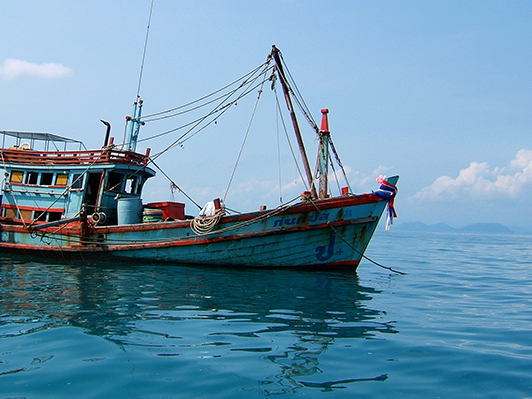Because of high export earnings, strong contribution to local consumption and its labour intensive nature, fishing and aquaculture are very important to Senegalese development policies.

FISHING
The important volumes and dynamic nature of fishing directly impact economic growth as well as the related activities of processing, trade and export.
AQUACULTURE
Aquaculture is a strategic sector and a pillar of the Accelerated Growth Strategy, a policy based of sustained and sustainable growth aiming to make of a Senegal an emerging country. Ambitious incentives have been implemented to encourage investment in aquaculture activities.
Each year, 30,000 tons of shrimp are harvested in the regions of Casamance and St. Louis. Aquaculture is growing fast, faster than livestock and agriculture. Particularly healthy because of its Omega 3 acid content and its cardiovascular effects, seafood offers strong export growth prospects as world population in general and African population in particular continues to increase.
The Aquaculture potential of Senegal
Senegal has strong aquaculture potential because of the following
- 718km of Atlantic Ocean coast
- 1,700 km of the Senegal River
- The Gambia River (750 km)
- The Casamance River (300km)
- Estuaries of the Sine-Saloum Delta
- Guier Lake (280 km2) and other dams

Investment opportunities in aquaculture
- Feed mill
- Farm production (fry, oysters …)
- Value adding processes
- Distribution
- Supplies and equipment
- Aquarium
Incentives for investment
Several incentives have been implemented to attract further investment in the sector. The National Aquaculture Agency, with UN Food and Agriculture Organization support, has developed :
- A Strategic Operational Plan for the Sustainable Development of Aquaculture in Senegal (PSO) including five-year production targets (2010 to 2015) to compensate for the shortfall in fishing yields
- An Investment Plan model for small and medium aquaculture enterprises (SMEs) to guide potential investors based on existing aquaculture SMEs performance
- A Code of Aquaculture with incentives to facilitate the acquisition of land, the remission of facilities, extendable business tax exemption for the first three years and more.
Several partners support Senegalese aquaculture development projects through capacity building techniques in aquaculture, funding for aquaculture projects in Senegal (IDB, BOAD, WB) and the construction of a research and training for marine species financed by South Korea through KOICA in particular.




